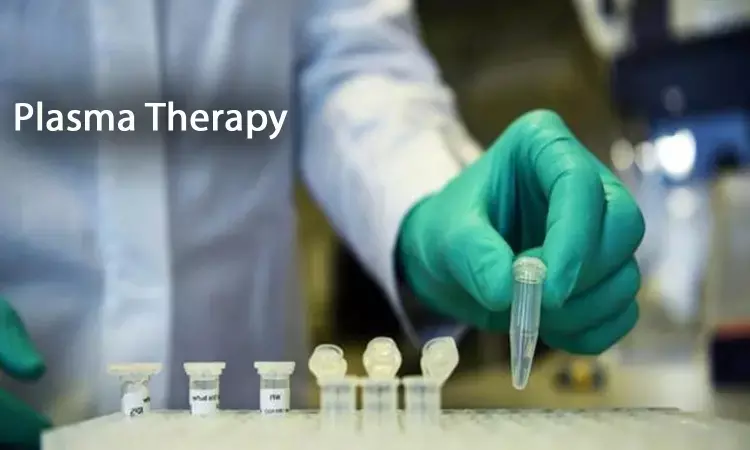- Home
- Medical news & Guidelines
- Anesthesiology
- Cardiology and CTVS
- Critical Care
- Dentistry
- Dermatology
- Diabetes and Endocrinology
- ENT
- Gastroenterology
- Medicine
- Nephrology
- Neurology
- Obstretics-Gynaecology
- Oncology
- Ophthalmology
- Orthopaedics
- Pediatrics-Neonatology
- Psychiatry
- Pulmonology
- Radiology
- Surgery
- Urology
- Laboratory Medicine
- Diet
- Nursing
- Paramedical
- Physiotherapy
- Health news
- Fact Check
- Bone Health Fact Check
- Brain Health Fact Check
- Cancer Related Fact Check
- Child Care Fact Check
- Dental and oral health fact check
- Diabetes and metabolic health fact check
- Diet and Nutrition Fact Check
- Eye and ENT Care Fact Check
- Fitness fact check
- Gut health fact check
- Heart health fact check
- Kidney health fact check
- Medical education fact check
- Men's health fact check
- Respiratory fact check
- Skin and hair care fact check
- Vaccine and Immunization fact check
- Women's health fact check
- AYUSH
- State News
- Andaman and Nicobar Islands
- Andhra Pradesh
- Arunachal Pradesh
- Assam
- Bihar
- Chandigarh
- Chattisgarh
- Dadra and Nagar Haveli
- Daman and Diu
- Delhi
- Goa
- Gujarat
- Haryana
- Himachal Pradesh
- Jammu & Kashmir
- Jharkhand
- Karnataka
- Kerala
- Ladakh
- Lakshadweep
- Madhya Pradesh
- Maharashtra
- Manipur
- Meghalaya
- Mizoram
- Nagaland
- Odisha
- Puducherry
- Punjab
- Rajasthan
- Sikkim
- Tamil Nadu
- Telangana
- Tripura
- Uttar Pradesh
- Uttrakhand
- West Bengal
- Medical Education
- Industry
Plasma exchange therapy emerges as novel treatment for alzheimer's, claims study

New research suggests that plasma exchange (PE) with albumin replacement may be an effective modality for slowing down symptoms of Alzheimer's disease (AD).The findings of research have been published in the journal of Frontiers in Neurology.
Plasma exchange treatments, which have been available for several decades, are used to treat a range of neurologic, immunologic, and metabolic disorders. The treatment involves plasmapheresis, whereby plasma is separated from blood cells (red blood cells, white blood cells, platelets, etc) and toxic substances are removed. The albumin in plasma, to which plasma A beta is bound, is replaced with a fresh commercial albumin product made from plasma from healthy donors.
Alzheimer Management by Albumin Replacement ("AMBAR") study was a phase IIb trial in the United States and a phase III trial in Europe extending over a period of 14 months
In the AMBAR study ,researchers included 496 patients (men and women aged 55-85 years) with probable Alzheimer's disease dementia who were enrolled at 41 sites in Spain and the United States. All were diagnosed with mild or moderate Alzheimer's disease. Then, they were randomly assigned the participants to four groups; one group received placebo, and each of the other three treatment groups received different doses of albumin and intravenous immunoglobulin (IVIg) replacement.
The results brought forth some key facts-
- Treatment groups averaged 50 to 75% less worsening of ADAS-Cog scores and 42 to 70% less worsening of ADCS-ADL scores than control subjects.
- AMBER treated patients declined, on average, 66% less than control subjects based on ADAS-Cog scores (p = 0.06) and 52% less based on ADCS-ADL scores (p = 0.03).
- Analyses of changes from baseline to endpoint in patients with moderate AD found 61% less disease progression, based on both ADAS-Cog and ADCS-ADL scores, than sham-treated moderate AD patients (p = 0.05 for ADAS-Cog, 0.002 for ADCS-ADL).
- Although some slowing of disease progression was also found in the treated patients with mild AD, a similar pattern was unexpectedly seen for sham-treated mild AD patients.
The researchers were of the opinion that among the mechanisms that could have contributed to AMBAR's slowing of disease progression are reductions in neurotoxic Aβ species, tau pathology, neuroinflammation, oxidative stress, microcirculatory deficits, and neurotoxic auto-antibodies.
Authors concluded that the results from AMBAR are encouraging, in contrast to the other approaches that have been tried to slow AD's progression. They also suggested further relevant studies to optimize the protocols.
For details log on to: https://doi.org/10.3389/fneur.2020.00459
Dr Satabdi Saha (BDS, MDS) is a practicing pediatric dentist with a keen interest in new medical researches and updates. She has completed her BDS from North Bengal Dental College ,Darjeeling. Then she went on to secure an ALL INDIA NEET PG rank and completed her MDS from the first dental college in the country – Dr R. Ahmed Dental College and Hospital. She is currently attached to The Marwari Relief Society Hospital as a consultant along with private practice of 2 years. She has published scientific papers in national and international journals. Her strong passion of sharing knowledge with the medical fraternity has motivated her to be a part of Medical Dialogues.
Dr Kamal Kant Kohli-MBBS, DTCD- a chest specialist with more than 30 years of practice and a flair for writing clinical articles, Dr Kamal Kant Kohli joined Medical Dialogues as a Chief Editor of Medical News. Besides writing articles, as an editor, he proofreads and verifies all the medical content published on Medical Dialogues including those coming from journals, studies,medical conferences,guidelines etc. Email: drkohli@medicaldialogues.in. Contact no. 011-43720751


